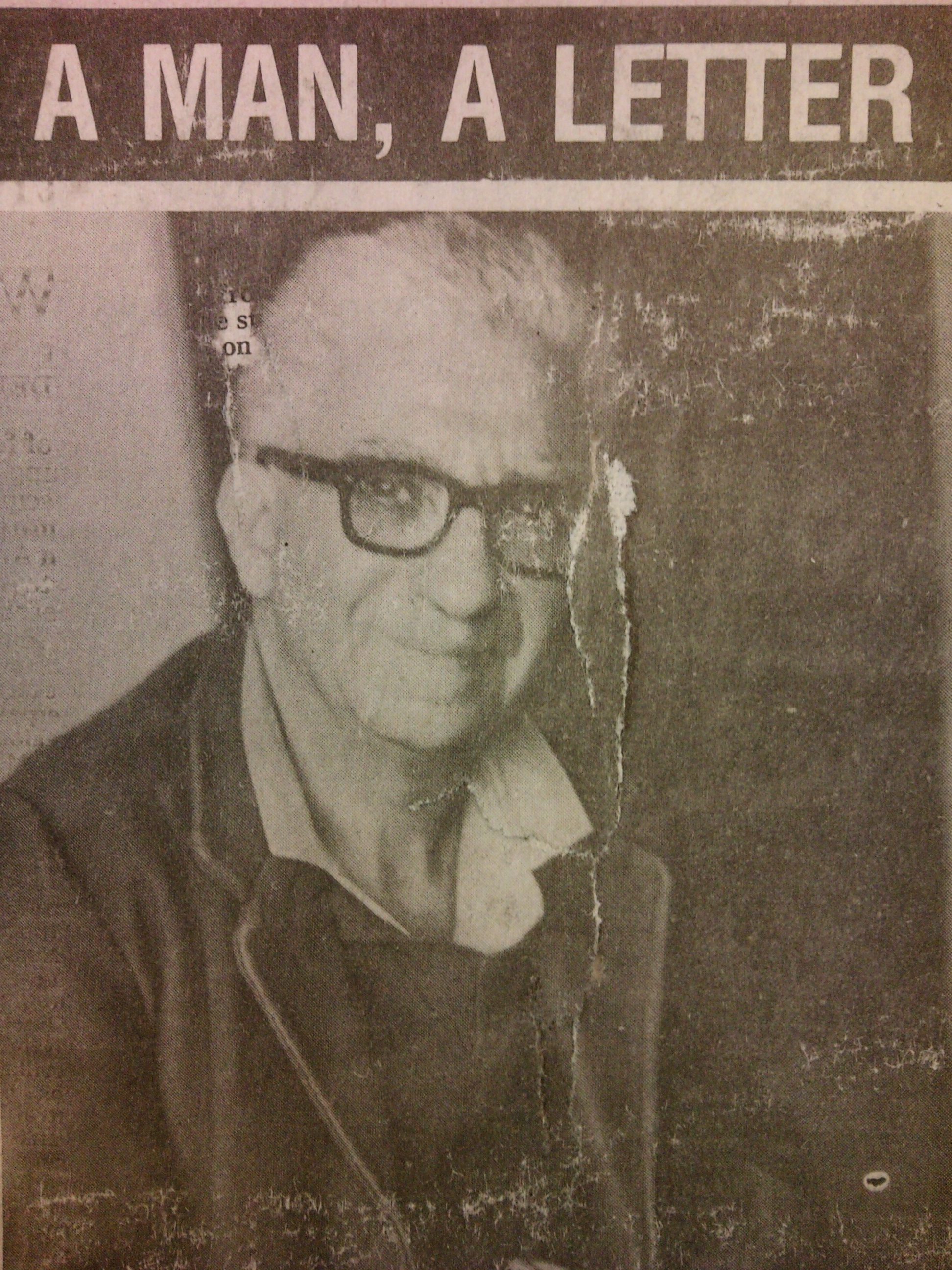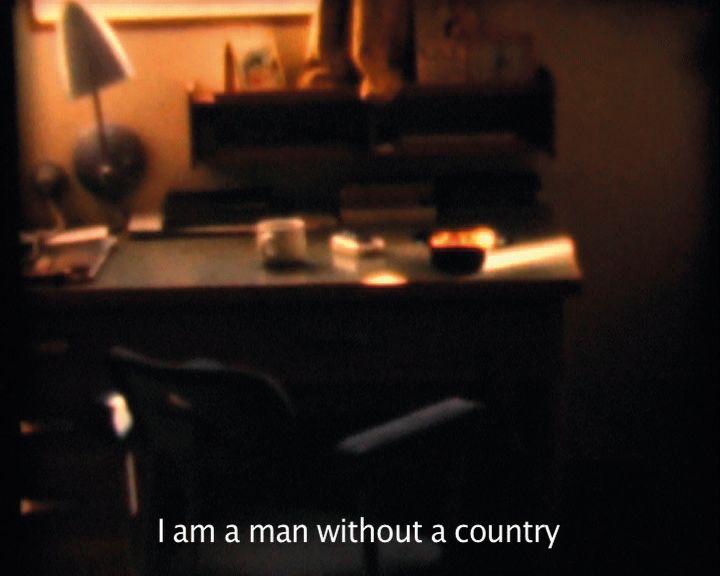Reading Harris Dousemetzis's The Man Who Killed Apartheid
Almost any biographer, if he respects facts, can give us much more than another fact to add to our collection. He can give us the creative fact; the fertile fact; the fact that suggests and engenders. — Virginia Woolf, ‘The Art of Biography’.
I am composing Tsafendas’s Diary, dredging it up from my dreams, bringing it back in a bottle. I line up the words one behind the other. — Ivan Vladislavic, Missing Persons.
Ahead of a talk on writing lives, finally finished Harris Dousemetzis's life of Dimitri Tsafendas, The Man Who Killed Apartheid. Not a great title, and not without its problems, but nonetheless an enormous, passionate, often astonishing biography, and one accompanied by a report submitted to the office of the Minister of Justice in South Africa that runs to three hardback volumes and 861 803 words.
From all this we learn the following:
1. During the Greek Revolution of 1821-32, the Ottoman Empire declared that ‘akis’, a suffix indicating smallness, should be added to the family names of all those Cretans rebelling against their authority. The surname Tsafendas thus became Tsafantakis.
2. Dimitri, born Tsafantakis (14 January 1918), changed his name back to Tsafendas when learning of this history from his Cretan father, Michalis Tsafantakis, who had a large collection of anarchist literature in his house in Lourenco Marques.
3. Dimitri was a compulsive reader from a very young age, and was described as ‘a lending library’ by those who knew him as a child.
4. He mainly liked to read in bed.
5. His favourite books included Emile Zola’s Germinal (1885), about exploitation of miners in 19th-century France, and Rabindranath Tagore’s The Home and the World (1916), the story of a political awakening in colonial India.
6. He also loved Dostoevsky, and would quote a line from Demons when discussing his killing of Verwoerd in his old age: ‘It’s easy to condemn the offender, the difficulty is to understand him.’
7. He idolised the African American leader, actor, trade unionist and singer Paul Robeson, who would become a leading voice in the civil rights movement.
8. His favourite song was Robeson’s deep baritone version of ‘Sometimes I Feel Like a Motherless Child’.
9. Another of his favourite songs was ‘Zot Nit Keymol’ (Song of Warsaw Ghetto), which he would sing in Yiddish, having memorised the lyrics.
10. He also loved Brecht.
11. When sent to live with his grandmother in Alexandria in 1920, the poet Constantine Cavafy (a close friend of his grandmother’s) was a regular visitor to the house. The picture of Dimitri as a boy above was taken in Egypt.
12. In whichever country he found himself, he would visit important revolutionary sites: the Benjamin Franklin Memorial in Philadelphia, the Place de la Concorde in Paris.
13. In 1947, he joined and received training from the Democratic Army of Greece (DSE) in the hills above Athens. The DSE was the military wing of the Greek Communist Party, fighting Royalist government forces in the Greek Civil War.
14. In Belgium, he staged a protest against the 1958 Brussels World Fair for its degrading display of a ‘Congo village’, billed as ‘A Human Zoo’.
15. In London he joined the Anti-Slavery Society and also made contact with Tennyson Xola Makiwane, ANC representative in London, whom he deeply admired.
16. He fought running battles with Oswald Mosley’s Union Movement in London’s Trafalgar Square in 1962 and was stabbed by fascists wielding broken bottles and iron bars.
17. He went to London demonstrations with a placard of a figure in a Ku Klux Klan outfit labelled VERWOERD. He proudly sent photographs of himself wearing the Yellow Star of David while carrying the placard to his father, unaware that by this time Michalis Tsafantakis was no longer alive.
18. Dimitri’s nickname for Verwoerd was ‘Hitler’s best student’.
19. Dimitri travelled with a battered suitcase containing the Freedom Charter, a poster honouring Patrice Lumumba as well as several Bibles, in case he needed to pretend that he was a missionary.
20. When reminded of how he used to be called ‘the lending library’ by a friend whom he caught up with in Umtali in 1964, he went to his battered suitcase and gave her a copy of Ralph Ellison’s Invisible Man.
21. In a hotel in Beira in 1964, he advanced the theory that ‘everyone should have sex with someone of a different colour so that a new race will be created with everyone the same colour or at least all mixed. Only then will there be no racism and discrimination anymore’.
22. Around the same time, he was visiting rural villages urging support for FREELIMO and handing out pictures of Frantz Fanon, which he had written quotes (by Fanon) on the back of.
23. He talked about the tactic of ‘being foolish for Christ’: a strategy dating back to the early years of Christianity when believers would pretend to be mad so that the Romans would spare their lives.
24. When in Durban he favoured the Cuban Hat tea room on North Beach.
25. When staying in a Woodstock bedsit in August 1966, Dimitri was nicknamed ‘The Texas Millionaire’ due to his smart suits, large frame and his grand bearing.
26. Dimitri loved seafood, especially saganaki prawns.
27. In January 1966, during a brief stint working for the Marine Diamond Corporation, he would remove lobsters from the suction pumps that were dredging the coastline, and take these home to cook.
28. Having befriended Greek sailors in the Cape Town docks, he would take them on visits to the townships to see the poverty and hardship there.
29. Following the visits, the sailors refused to spend any money in white-owned shops in Cape Town, and urged crews from other ships to do the same (also Dimitri’s idea).
30. In April 1966, a few months before his assassination, Dr Verwoerd received the inaugural Dr Verwoerd Award, set up to mark the first (failed) assassination attempt on the prime minister by David Pratt in April 1960. Its aim was to recognise ‘exceptional service’ rendered to the state by one of its citizens.
31. Dimitri was very taken by Thomas Aquinas’s idea that tyrannicide, the killing of a ruling tyrant, was morally justifiable.
32. Even when staying in serviced rooms (for example in No. 7 Prince Street, Gardens), Dimitri always made his own bed, as he did in hotels and hospitals, since he considered it rude to leave the task for others.
33. But everyone who met him agreed that he was a very messy eater.















